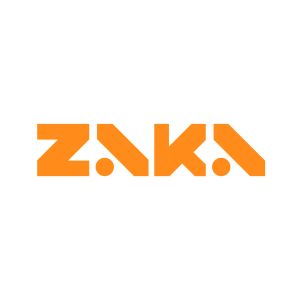In a compelling interview with Jessy on MTV’s Digital World, Larissa Abi Nakhle, Co-Founder of ZAKA, shared her journey and insights into the world of Artificial Intelligence (AI) and the educational initiatives driving positive change.
A Decade in the AI World
Jessy initiated the conversation by delving into Larissa’s extensive involvement in AI. With over a decade of experience, Larissa emphasized her commitment to advancing AI education. In 2019, she became a part of Beirut AI, a non-governmental organization (NGO) with a mission to inform and educate individuals about the transformative power of AI. It was during this time that she crossed paths with Christophe Zoghbi and recognized the urgent need for AI education. This realization led them to co-found ZAKA.
Embracing Competition as Collaboration
Addressing the question of competition in the AI education market, Larissa framed it as an opportunity for collaboration. She emphasized the importance of collective efforts to increase awareness and understanding in this rapidly evolving sector. By fostering collaboration, Larissa envisions a synergistic approach that benefits the entire AI community.
The Impact of ZAKA's Online Presence and Challenges in Rural Areas
Jessy emphasized ZAKA’s vibrant presence on social media, highlighting how she personally requested assistance and received support. This included receiving suggestions for AI tools through ZAKA’s Instagram account. Larissa emphasized the significance of the online community and how it fosters a supportive environment for knowledge sharing and collaboration. Discussing challenges in the era of AI, Larissa emphasized the need to educate people in rural areas, focusing Beirut AI’s initiatives in places like ZAHLE and Tripoli. The goal is to empower individuals in these areas to utilize AI tools, such as ChatGPT, and raise awareness about the transformative potential of AI
Evaluating Success, Collaboration, and the Personal Impact of AI
When asked about ZAKA’s success metrics, Larissa emphasized the importance of initiatives and feedback. She highlighted the collaborative nature of ZAKA’s mission, acknowledging the diverse experiences of individuals as crucial for generating innovative ideas. Larissa stressed the significance of collaboration in shaping various initiatives that demonstrate how AI can contribute to different domains. Jessy inquired about AI’s impact on personal performance, to which Larissa discussed the benefits of AI and ChatGPT. They explored the importance of mentors and educators accepting AI as an integral part of our lives, emphasizing the need to adapt teaching methods rather than resisting technological advancements.
Diverse Events for All Age Groups and Addressing Bias
Regarding ZAKA’s AI workshops, Larissa highlighted their inclusivity, catering to a wide range of age groups from young individuals to seniors. This inclusiveness reflects ZAKA’s commitment to making AI education accessible to everyone. Closing the interview, Jessy asked about bias and inclusion in the AI world. Larissa emphasized the community’s role in embracing AI and fostering inclusivity by establishing local communities capable of addressing and resolving local biases.
In essence, Larissa’s interview showcased her passion for AI education, emphasizing collaboration, community support, and the empowerment of individuals across diverse backgrounds. ZAKA, under Larissa’s leadership, stands as a catalyst for positive change, driving the narrative of AI education towards inclusivity and collective progress.

